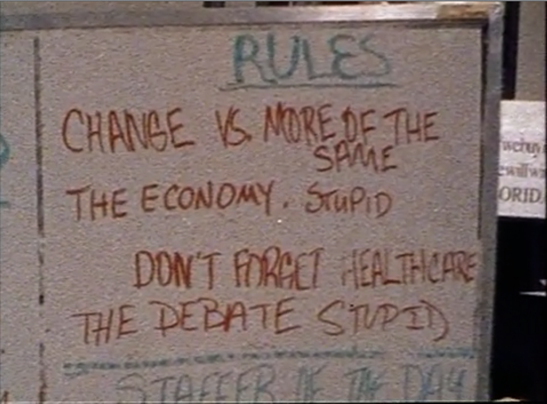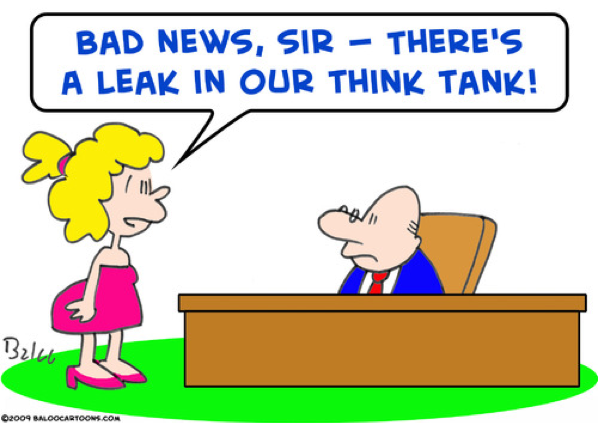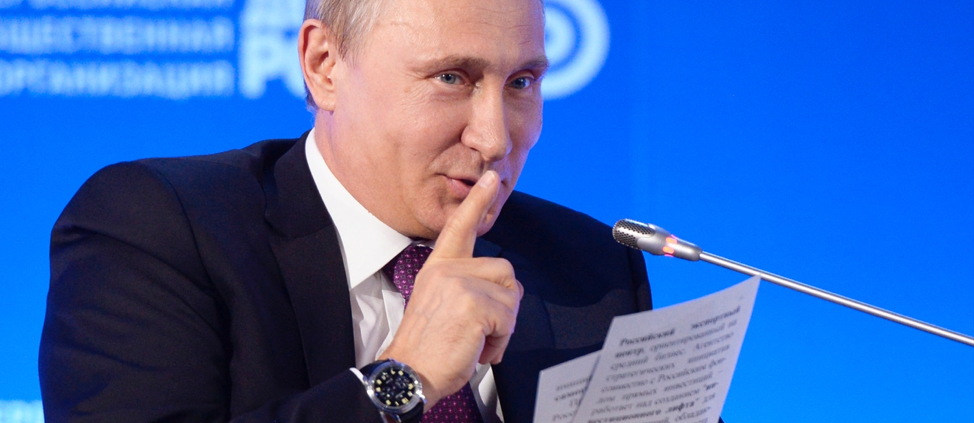Envelope and Tax Wars and the Rejection Election
Here’s What You Need to Know
In past year, Google’s Paris offices were raided by French authorities seeking evidence of tax evasion, EU regulators ruled a tax deal negotiated between Starbucks and The Netherlands was illegal (a decision the Dutch government appealed), and those same regulators announced they would rule on a similar tax agreement between Amazon and Luxembourg. Now, in a move this week, EU tax officials hit Apple with a $14.5 billion tax bill.
Brussel-crats have repeatedly claimed that U.S. businesses are avoiding European taxes by engaging in transfer pricing deals that allow them to negotiate favorable tax rates with one EU country, then funnel all or most EU sales through that subsidiary. Here’s what you need to know about the burgeoning U.S.-EU tax war:
- U.S. Treasury Calls Bias: Last week the U.S. Treasury released a white paper suggesting European regulators have been targeting tax deals with American businesses for investigation. The European Commission has denied that there is a bias and said all companies in the EU are subject to the same rules, but Deputy Assistant Treasury Secretary for international tax affairs Robert Stack argued that demanding U.S. companies pay retroactive taxes to European governments “could create an unfortunate international tax policy precedent.”
- EU Takes A Bite Out Of Apple: This Wednesday the EU Competition Commissioner completed a three-year investigation into the tax arrangement between Apple and the Irish government, concluding, “that Ireland granted undue tax benefits of up to €13 billion to Apple.” The Commission claimed the agreement constituted, “illegal state aid” and would require Apple to pay the Irish government the €13 billion in back taxes plus interest. Apple and the Irish government have both criticized the decision and announced plans to appeal the ruling.
- Who’s Next? Aside from the ongoing investigation into Amazon, European regulators also have an open investigation into a tax deal negotiated between McDonald’s and Luxembourg. UK business leader have begun to express concern that major British companies like HSBC, Vodafone, and GlaxoSmithKline could soon face similar discrimination.
- U.S.’s Next Move: The Apple ruling brought bipartisan condemnation from Congress and the Obama administration. The Treasury Department‘s next move may be to revive a previously considered strategy to apply a retaliatory double tax on EU businesses and individuals using an obscure section of the Internal Revenue Code.
News You Can Use
WELFARE REFORM AT 20
One of the legacies of The Personal Responsibility and Work Reconciliation Act (PRWORA) signed into law by President Bill Clinton 20 years ago has been a decline in overall poverty in America. Despite claims that the welfare reform measure would literallykill poor children, a recent analysis by Manhattan Institute fellow Scott Winship illustrates, “Child poverty overall fell between 1996 and 2014, after taking into account refundable tax credits and noncash benefits other than health coverage. After including household heads’ live-in romantic partners in the family (i.e. cohabitation) as well, child poverty was lower in 2014 than at any point since at least 1979.” While Hillary Clinton promises to usher in even more government intervention and bureaucracy, Bill Clinton signed into law a policy crafted with a Republican Congress that demonstrated the positive impact of ending the era of Big Government.
PLAGIARISM SOUTH OF THE BORDER
A team of investigative journalists in Mexico recently revealed the country’s president, Enrique Pena Nieto, plagiarized nearly a third of his 1991 undergraduate law thesis. This revelation comes two years after the same team of journalists uncovered a plan by Pena Nieto’s wife to purchase a luxury home from a government contractor, which led to a significant blow to the president’s credibility. These revelations show that no matter how well-vetted a candidate is or how often they have run for office before, there may still be concerning facts hiding in their background.
WHAT 2 WATCH 4 NEXT ON THE HILL
The presidential campaign may be taking up all of the media airspace, but there are important upcoming policy debates when Congress is back in session next week. Even on the thorny issue of immigration, which has been a hot topic between Clinton and Trump, Congress is set to take up critical items like Cuban migration policies, EB-5 investor visas, guest worker programs, biometric entry, exit procedures, and visas for Afghan allies. Beyond immigration, the remaining eight legislative session weeks of this Congress could see debates over reauthorization of the Commodity Futures Trading Commission and the FAA, criminal sentencing reforms, and various appropriations and budget issues. Just because the campaigns are driving the daily message doesn’t mean Capitol Hill will stay dormant on key issues.
EPI-POLITICS VS. REGULATORY REALITY
Hillary Clinton has joined the chorus of politicians and pundits criticizing EpiPen producer (and Clinton Foundation donor) Mylan over accusations of price gauging while dramatically increasing executive salaries. While price increases are usually the result of treatments or major R&D processes that end up being expensive, the EpiPen situation is actually the result of a monopoly created by government regulations. The FDA has repeatedly rejected other pharmaceutical companies’ efforts to receive approval for generic EpiPens. This delay is, of course, not by chance. Mylan employs a team of lobbyists and influencers to ensure this remains the status quo, which is why calls for increased regulation requiring drug companies to justify price increases miss the point.
THE PERSONAL IS NOT REALLY POLITICAL
Maria Konnikova, a psychology and science contributor for the New Yorker, recentlyargued that most studies seeking to tie political preference to unifying personality traits are “malarkey.” Konnikova cited a Virginia Commonwealth University study by a geneticist showing that rather than these traits having a causal relationship with a person’s politics, “It is far more likely that politics and personality traits are both influenced by some earlier genetic and environmental factors. In other words, they may indeed be related, but the fact that someone is liberal does not make him more tolerant, for instance, just as being tolerant does not make someone liberal.” Based on this study, political campaigns that attempt to craft a unifying message based on assumptions of unifying personality traits of their base or undecided voters should rethink their approach.
THE ENVELOPE LOBBY
A group called “Consumers for Paper Options,” which promotes the interests of the paper envelope industry, just scored a big victory from the Securities and Exchange Commission. The group helped convince the SEC to abandon efforts to loosen rules forcing mutual funds to mail paper documents to their investors. Mutual funds had been lobbying for the freedom to make electronic delivery of investment documents the industry default. But Consumers for Paper Options began a successful campaign to convince SEC regulators that the electronic communications would confuse consumers. The group’s coalition didn’t only include envelope company CEOs and paper lobbyists; they recruited labor unions representing postal workers and paper mill workers. Consumers for Paper Options is a prime example of how coalitions in Washington often don’t represent who they say they do – a group claiming to be for vulnerable consumers could actually just be a lobbying operation for paper producers and big labor.
ON ELECTION DAY, WHO WILL YOU REJECT?
With most polls seeming to suggest more Americans disliking both Hillary Clinton and Donald Trump than approving of them, University of Texas professor of psychology and marketing Dr. Art Markman suggests there is a subtle difference in how we chose between two things when we dislike each option. He writes, “When people are dissatisfied with all of their options, research suggests that they often focus on finding reasons to reject one over the other rather than reasons for preferring one.” The subtle difference forces people to focus on the negative attributes that help determine who to reject rather than the positive attributes of who to prefer. The resulting consideration leaves pollsters and political operatives not only focused on the question of who undecided voters will reject, but whether or not undecided voters reject going to the polls at all.
Mark Your Calendars
Monday, September 26: First Presidential Debate, Hofstra University, Hempstead, NY









